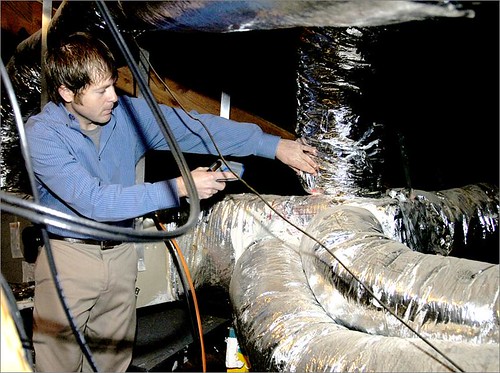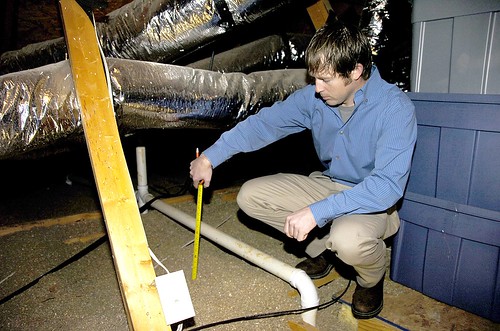Earlier this month, Vice President Joe Biden announced a “Recovery Through Retrofit” initiative aimed at boosting energy efficiency in homes across the country. As part of the effort, the U.S. Department of Energy (DOE) has developed Home Energy Score software that will standardize home energy audits, providing homeowners with a score, a list of possible upgrades, and a breakdown of the costs and benefits of recommended upgrades.
Electric cooperatives and the U.S. Department of Agriculture (USDA) have joined the effort in order to facilitate audits and fund upgrades in rural communities, in part through the existing Rural Economic Development Loan and Grant program (REDLG).
“We are working with four electric cooperatives on a pilot basis to develop the program,” said Dallas Tonsager, USDA under secretary for Rural Development. “We’re very pleased to support this effort. We see new jobs. We see improvements in carbon levels across the country. We see homeowners getting a better deal. We just think that’s good for everybody—it’s a triple hit.”
To help homeowners meet upfront costs of upgrades, USDA Rural Development is promoting the Rural Economic Development Energy Efficiency (REDEE) effort, a partnership between USDA and DOE that taps resources from Rural Development’s Utilities, Housing and Business program areas. As part of this, the Rural Utilities Service currently provides funding for utility infrastructure that may include energy efficiency improvements.
Homeowners in rural communities also may be eligible for funding through the Rural Housing Service, enabling qualifying homeowners to purchase a house or retrofit their existing home through a variety of loan and grant programs.
And as an additional option, electric cooperatives can obtain funding for upgrades through the REDL&G program, according to USDA, which provides local utilities with grants and zero-interest loans that ultimately fund a wide range of rural community and economic development projects.
REDL&G funds are not directly available to homeowners, but they can be used by electric cooperatives for businesses making energy efficiency retrofits in these homes. Through USDA’s guaranteed underwriter program, CFC currently pays $9 million per year in fees to help fund the REDL&G program. “USDA’s Rural Development programs are a perfect vehicle for supporting energy efficiency for housing, businesses, farms and utilities,” USDA Secretary Tom Vilsack said in announcing the effort.
The Home Energy Score pilot program is currently under way, and DOE anticipates a full national rollout in fall 2011. REDEE effort funding options are available now; electric cooperatives can contact their Rural Development state office for more information.
As part of the “Recovery Through Retrofit” initiative, DOE and USDA turned to electric cooperatives—in Indiana, South Carolina, Virginia and Texas—to test the new Home Energy Score software in pilot programs. Cleburne, Texas-based United Cooperative Services, one of the pilot participants, will use the tool to enhance an energy audit program in place for five years.
“The Home Energy Score will dovetail into our existing program and hopefully provide greater clarity with regards to how our members can target certain areas of their home to improve efficiency,” said United CEO and CFC Director Ray Beavers.
The software will use energy audit results to score a home between one and 10, with 10 being the most efficient. It will then generate a list of potential upgrades, related costs and an estimated payback period. United will add the component to its energy audit program in late 2010, with the goal of providing Home Energy Score ratings to at least 250 homes through 2011.
Other electric cooperatives involved in the pilot—Hoosier Energy, Bloomington, Ind.; The Electric Cooperatives of South Carolina (ECSC), Cayce, S.C.; and Central Virginia Electric Cooperative, Arrington, Va.—also plan to use the software to enhance existing programs.
“We will be deploying this pilot across South Carolina, with plans to score 200 homes by mid-2011,” said ECSC CEO Mike Couick. “It’s important that members understand the options they have when making energy efficiency upgrades. Personalized Home Energy Score reports could take that understanding to a new level.”
To learn more about the Home Energy Score Program click here. To find out how you can start saving energy and reducing your electric bill today click here.






